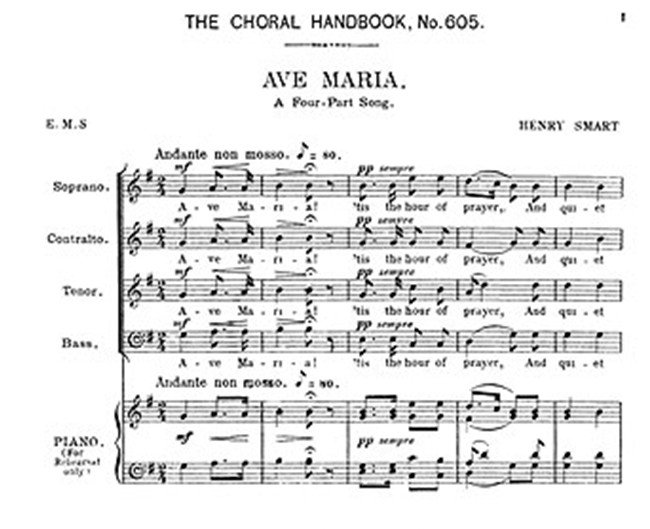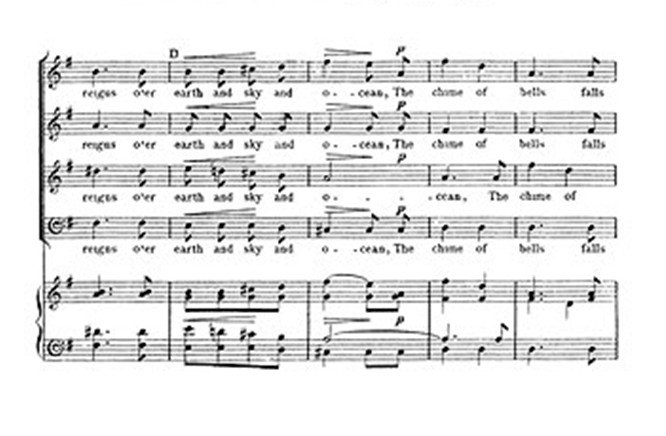Ave Maria
Composer: Henry Thomas Smart (1813-1879)

| MIDI / Lyrics: not available |
Recording: not available |
Demo-score: incomplete, on
THIS PAGE
"The Choral Handbook No. 605." |
also:
Ave Maria; words by Thomas Harpin, music by
Henry Smart arr. by
WLT (1906 copyright) |

 |
Only the first page is available. Publ. J. Curwen and
Sons Ltd
can be purchased on
THIS PAGE
Do you have a complete copy? |

|
http://www.oldandsold.com/articles11/culture-40.shtml |
| SMART, HENRY THOMAS. 1813-79. England. Some
Chief Works: The Gnome of Hartzburg ; The Bride of Dunkerron ; Ave Maria ;
Rise, Lady, Rise. Biography by Spark, 1881. |
|
http://hymnuts.luthersem.edu/hcompan/writers/smart.htm |
Born October 25, 1813, in London. He was the
son of Henry Smart, a music publisher, orchestra director, and an
accomplished violinist. His uncle, Sir George Thomas Smart, was one of the
greatest English conductors and was also the organist of St. George's,
Windsor. Henry Thomas studied music with his father and attended school at
Highgate. As a boy, he spent free time at the Robson organ factory and
attended scientific lectures at the Royal Institution. As a twelve year-old,
he had a talent for mechanical drawing. Later, he refused a commission in
the Indian Army so that he could study law. But after four years of a legal
career, he completely directed his time and talent to the study of music. He
built on his father's earlier training to study on his own. Soon, he was
recognized as one of England's finest organists and as an accomplished
composer.
He served as organist at the Parish Church, Blackburn, Lancashire,
1831-1836; at St. Philip's, Regent Street, London, 1838-1839; at St. Luke's,
Old Street, 1844-1864; and St. Pancras Church, London, 1865-1879. He
designed an organ for Leeds Town Hall in 1858 and another at St. Andrew's
Hall in Glasgow, 1877. He was one of five organists asked to perform at the
Great Exhibition of 1851.
He edited The Presbyterian Hymnal, 1875, and the Chorale Book, 1856, which
was later considered the standard for hymn-tune harmonization. Lightwood
regards this work as instrumental in determining the harmonic structure of
English hymn-tunes just as Bach's harmonizations did for the German chorale.
He also contributed tunes to Hymns Ancient and Modern, 1861, and to Psalms
and Hymns, 1867. Smart also wrote as a music critic for the weekly journal,
the Atlas.
Smart composed a variety of music including cantatas, trios, duets, songs,
an opera, an oratorio, services, organ music, and many hymn tunes.
His eyesight began to wane at age eighteen and he was stricken with complete
blindness at age fifty-two. But his daughter recorded all of his
compositions for him. Plus, his long recognized gift for extemporizing
allowed him to continue his work as organist, composer, and superintendent
of more organ installations. He died July 6, 1879, in London.
|

Page last modified:
November 02, 2011
Return to my homepage:
www.avemariasongs.org

|
![]()